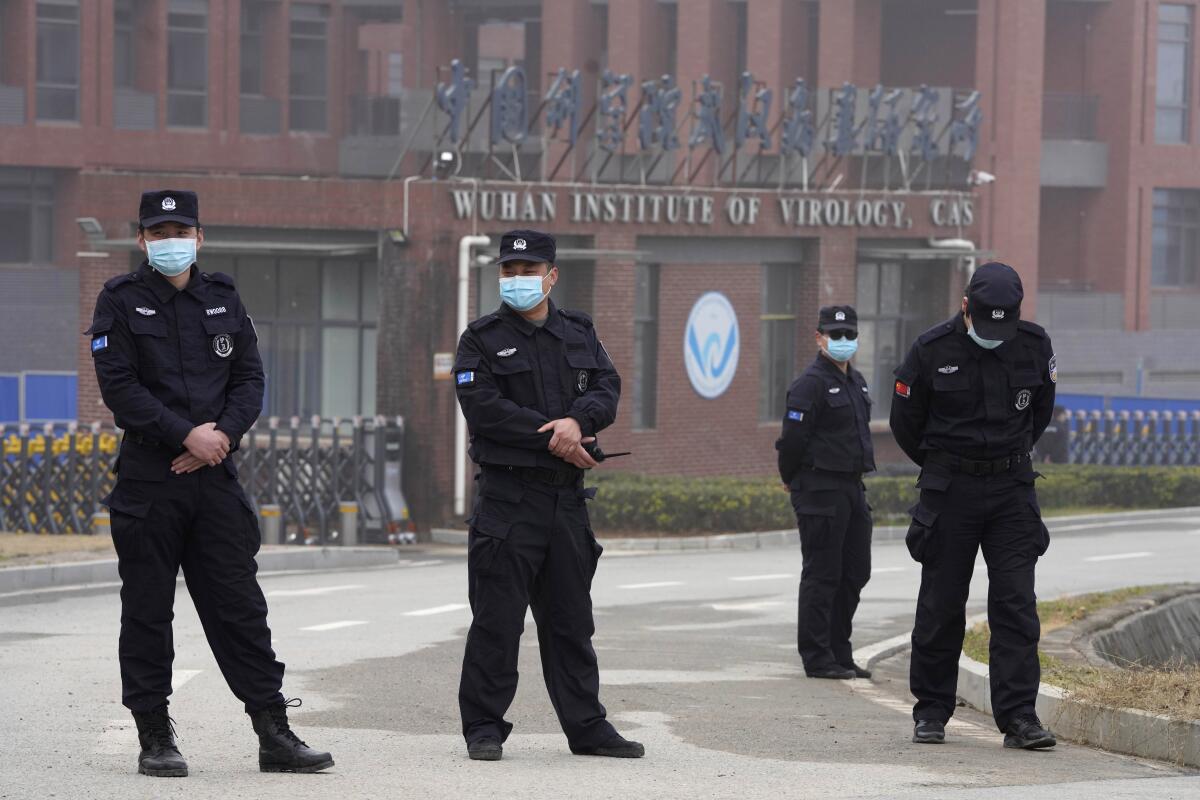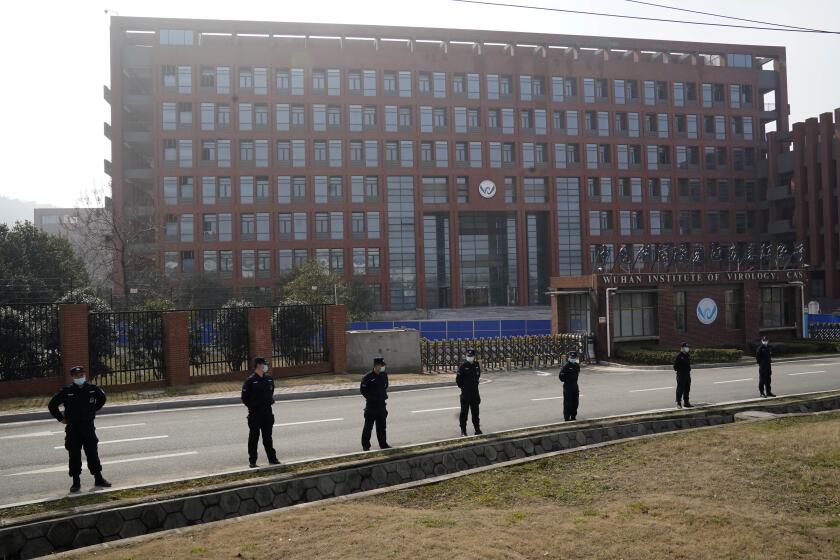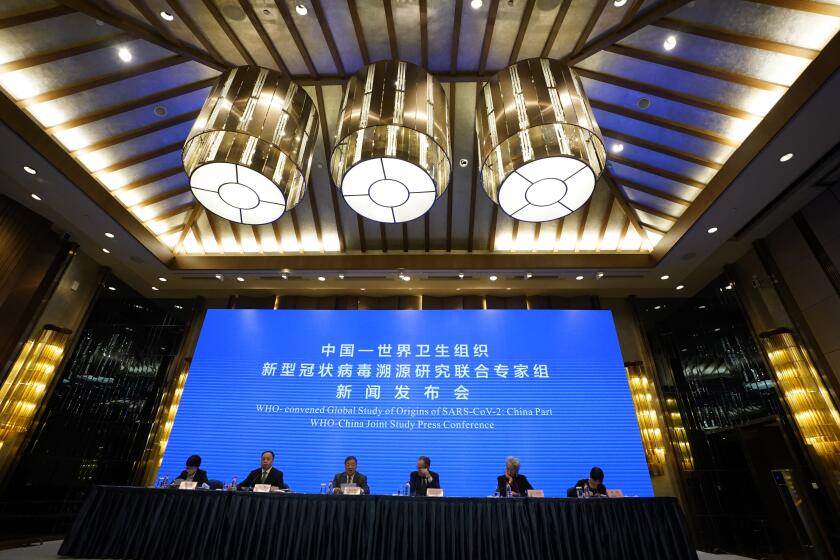U.S. intelligence report is inconclusive on COVID-19 origin

- Share via
The latest U.S. intelligence report on the origins of COVID-19 is inconclusive, according to an official familiar with it — an outcome that will do little to quell debate about whether the virus spread to humans directly from animals or leaked from a research lab in Wuhan, China.
President Biden received the report this week after asking for a deeper examination of the pandemic’s origins. He was briefed, and the White House is preparing to release an unclassified version in the coming days, officials said.
The report doesn’t point squarely to one source as the likely origin of the outbreak, echoing previous intelligence assessments, one of the officials said.
The previous assessment prepared for Biden acknowledged divisions over whether the coronavirus that causes COVID-19 was naturally transmitted from animals to humans or whether it leaked from the Wuhan Institute of Virology, a claim that’s popular among some Republicans and hasn’t been ruled out by experts. Biden made the report’s major findings public in May.
Scientists are urging their colleagues to dig deeper into the origins of the coronavirus behind the pandemic, including the possibility of a lab escape.
The news that the latest assessment was inconclusive was reported earlier by the Washington Post .
By not ruling out a lab leak, the new report may stoke tensions between Washington and Beijing before a potential meeting between Biden and Chinese President Xi Jinping at the Group of 20 summit this fall.
Chinese officials have repeatedly denied that the Wuhan lab was the source of the outbreak, and a Foreign Ministry spokesman said in May that Biden was engaging in “political manipulation” by ordering the latest report.
Sen. Marco Rubio, a Florida Republican, called for the immediate declassification of the intelligence report and for legislation authorizing sanctions on China if the country fails to allow a full investigation.
“The American people deserve to know what our government does and does not know about the origins of Covid-19,” Rubio said in a statement Wednesday.
Biden has said the U.S. was looking into a potential “accident” at the lab — an implicit rejection of unsubstantiated assertions that China may have intentionally set the virus loose.
Understanding the origins of SARS-CoV-2, the virus that causes COVID-19, is a linchpin for future pandemic prevention.
Biden made the pandemic response the top focus of the first months of his presidency, but he has grappled with a fresh surge of cases driven by the Delta variant, which is spreading rapidly among those who haven’t been vaccinated.
A research paper published in June in the journal Scientific Reports contains data and photographic evidence supporting the theory that the outbreak stemmed from infected wild animals. It reported that several animals that can be coronavirus hosts were sold for years in shops across the city, including a now-infamous wildlife market that has been linked to the outbreak.
Biden’s director of national intelligence, Avril Haines, said in June that the two competing theories remain a subject of debate and acknowledged there might be no firm conclusion. “We’re hoping to find a smoking gun, but it might not happen,” she said.
A World Health Organization report this year said the most likely origin was that the virus spread to humans from bats through an unspecified intermediary animal. The White House criticized the report as incomplete and lacking crucial data, and WHO Director-General Tedros Adhanom Ghebreyesus said it wasn’t “extensive enough.”
Dr. Anthony Fauci, Biden’s top advisor on infectious diseases, reiterated Wednesday that he believed it was unlikely that the virus came from a lab. He also warned that uncertainty may persist, noting that the origin of the 2014 Ebola outbreak still isn’t fully understood.








